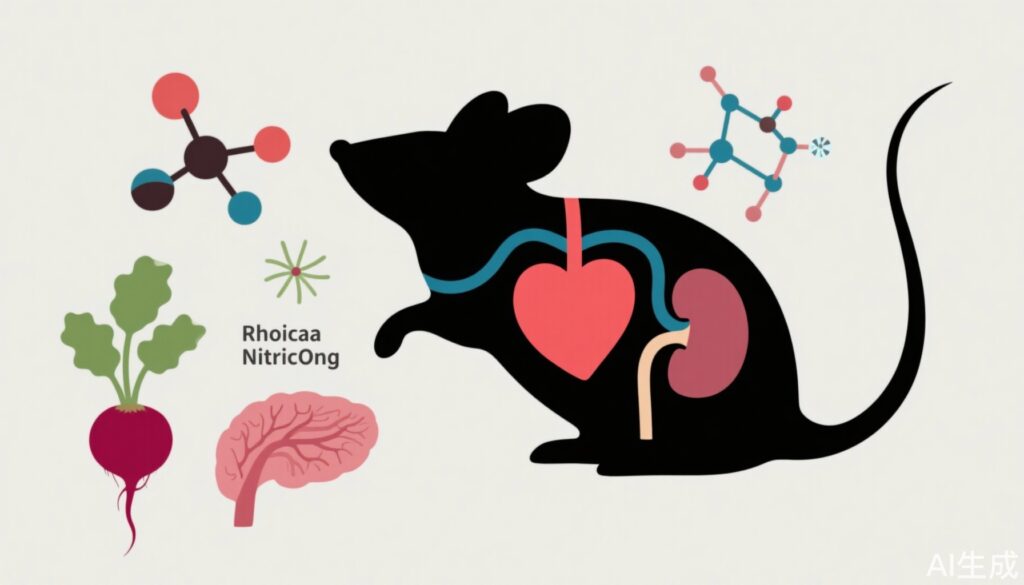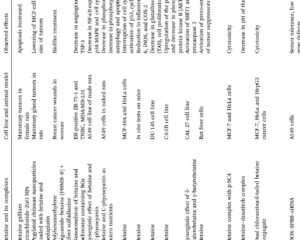Highlight
- Flexovital supplementation significantly reduces increased body fat mass, fasting glucose, hypertension, and endothelial dysfunction in mice with cardiovascular-kidney-metabolic (CKM) syndrome.
- FLX improves glomerular filtration rate (GFR) and limits renal structural damage following unilateral nephrectomy and chronic Western diet exposure.
- Enhanced mitochondrial oxidative phosphorylation efficiency in renal tissue was observed after FLX treatment, suggesting metabolic and bioenergetic improvements.
- These preclinical findings support the potential of nitric oxide-enhancing nutraceuticals as preventive therapy in CKM syndrome, pending validation in human clinical trials.
Study Background and Disease Burden
Cardiovascular-kidney-metabolic (CKM) syndrome represents a complex constellation of interrelated pathologies characterized by the coexistence of cardiovascular disease, chronic kidney impairment, and metabolic dysfunction such as obesity and glucose intolerance. This syndrome imposes a substantial health burden globally, with rising prevalence attributed to aging populations and lifestyle factors like unhealthy diets. CKM syndrome significantly elevates morbidity and mortality, largely due to cardiovascular complications that frequently occur in the setting of compromised renal function and metabolic imbalances.
Traditional therapeutic approaches often address components individually rather than the integrated syndrome, highlighting an unmet need for interventions that target the shared pathophysiological mechanisms. One such mechanism is endothelial dysfunction, frequently driven by reduced nitric oxide (NO) bioavailability, which contributes to hypertension, impaired glucose metabolism, and renal tissue injury. Nutraceutical strategies with NO-enhancing properties may therefore provide a multifaceted therapeutic advantage by simultaneously modulating vascular, metabolic, and renal dysfunctions.
Study Design
This preclinical investigation employed a well-characterized murine model designed to recapitulate components of the CKM syndrome. Male C57BL/6J mice underwent unilateral nephrectomy (UNX) to simulate reduced renal mass and associated susceptibility to renal and cardiovascular stress. Subsequently, mice were fed a Western diet (WD) high in salt, sugar, and fat over 12 weeks to induce metabolic derangements.
Mice were randomized into three groups: sham-operated controls on standard chow, UNX+WD receiving no treatment, and UNX+WD supplemented with Flexovital (FLX). FLX is a food additive formulated to enhance NO production through combined administration of extracts from Rhodiola rosea and beetroot, along with the amino acids L-arginine and L-citrulline, which serve as NO precursors. The intervention aimed to assess whether FLX could mitigate the metabolic, cardiovascular, and renal dysfunctions arising from UNX+WD challenge.
Endpoints included assessment of body composition, glucose metabolism (fasting glucose and glucose clearance), arterial blood pressure, endothelial function, glomerular filtration rate (GFR), renal histopathology, and mitochondrial bioenergetics.
Key Findings
The study revealed that UNX+WD mice developed significant features of CKM syndrome compared to controls. There was a marked increase in body fat mass, elevated fat-to-lean mass ratio, and enlarged adipocyte area, reflecting obesity-like metabolic changes. FLX treatment substantially attenuated these increases, indicating improvement in body composition and adipose tissue remodeling.
Metabolically, fasting blood glucose levels were elevated in UNX+WD mice, consistent with impaired glucose handling. FLX significantly reduced fasting glucose and showed a trend toward better glucose clearance, suggesting enhanced insulin sensitivity or glucose metabolism.
Cardiovascular assessments demonstrated that UNX+WD induced sustained arterial hypertension and endothelial dysfunction, both of which were significantly alleviated by FLX. This vascular protective effect likely reflects restored NO bioavailability and improved endothelial nitric oxide synthase activity impacted by the supplement’s constituents.
Renal function, evaluated by GFR, was impaired in the UNX+WD group, accompanied by histological evidence of glomerular and tubular injury. FLX supplementation improved GFR and mitigated renal structural damage, indicating nephroprotective effects.
Mitochondrial analyses revealed that FLX increased the P/O ratio of oxidative phosphorylation in isolated renal mitochondria from UNX+WD mice. This finding suggests enhanced bioenergetic efficiency and reduced mitochondrial dysfunction, which are crucial factors in kidney injury and metabolic disease progression.
Expert Commentary
The study by Carvalho et al. provides compelling preclinical evidence that a dietary supplement specifically designed to enhance nitric oxide bioavailability can beneficially modulate multiple interrelated pathological pathways in cardiovascular-kidney-metabolic syndrome. The multi-component formulation targets endothelial dysfunction, mitochondrial impairment, and metabolic disturbances, key drivers underlying CKM syndrome.
While promising, the translational applicability to human patients remains to be established. Important considerations include dosing regimens, long-term safety, and efficacy in clinically heterogeneous populations. Furthermore, the involvement of Rhodiola rosea and beetroot extracts, alongside L-arginine and L-citrulline, supports a synergistic effect on NO production and oxidative stress reduction, which aligns with existing literature highlighting the vascular and metabolic benefits of these agents.
It is noteworthy that this study used a rigorous combination of unilateral nephrectomy and Western diet to approximate the complex human CKM condition, enhancing the model’s clinical relevance. However, extrapolations should be cautious, as murine physiology and metabolic responses differ from humans. The results encourage future clinical trials to discern potential benefits and mechanisms in CKM patients.
Conclusion
Flexovital, a novel nitric oxide-enhancing food supplement, demonstrated robust protective effects against cardiovascular, kidney, and metabolic impairments in a mouse model of CKM syndrome induced by unilateral nephrectomy plus chronic Western diet feeding. It favorably modulated body composition, glucose metabolism, blood pressure, endothelial function, renal function, histopathology, and mitochondrial bioenergetics. These findings support the concept that NO-based nutraceutical interventions may represent an integrative preventive strategy for complex syndromes like CKM. The encouraging preclinical results warrant well-designed clinical trials to validate efficacy and safety in humans and to explore its role in multifactorial chronic disease management.
References
1. Carvalho LRRA, Tydén M, Shimari M, Zhuge Z, Schiffer TA, de Oliveira Monteiro MM, Lundberg JO, Weitzberg E, Andersson DC, Fellström B, Carlström M. Protective Effects of the Food Supplement Flexovital in a Model of Cardiovascular-Kidney-Metabolic Syndrome in Mice. Nutrients. 2024 Nov 28;16(23):4105. doi: 10.3390/nu16234105.
2. Tuttle KR, et al. Diabetic Kidney Disease: A Report From an ADA Consensus Conference. Diabetes Care. 2014;37(10):2864-2883.
3. Förstermann U, Sessa WC. Nitric oxide synthases: regulation and function. Eur Heart J. 2012;33(7):829-837.
4. Kapur N, et al. Therapeutic potential of L-arginine and L-citrulline in cardiovascular diseases. Nitric Oxide. 2015;48:27-34.
5. Lee SJ, et al. Rhodiola rosea as a stimulant and adaptogen: an overview. Planta Med. 2009;75(10):933-942.



